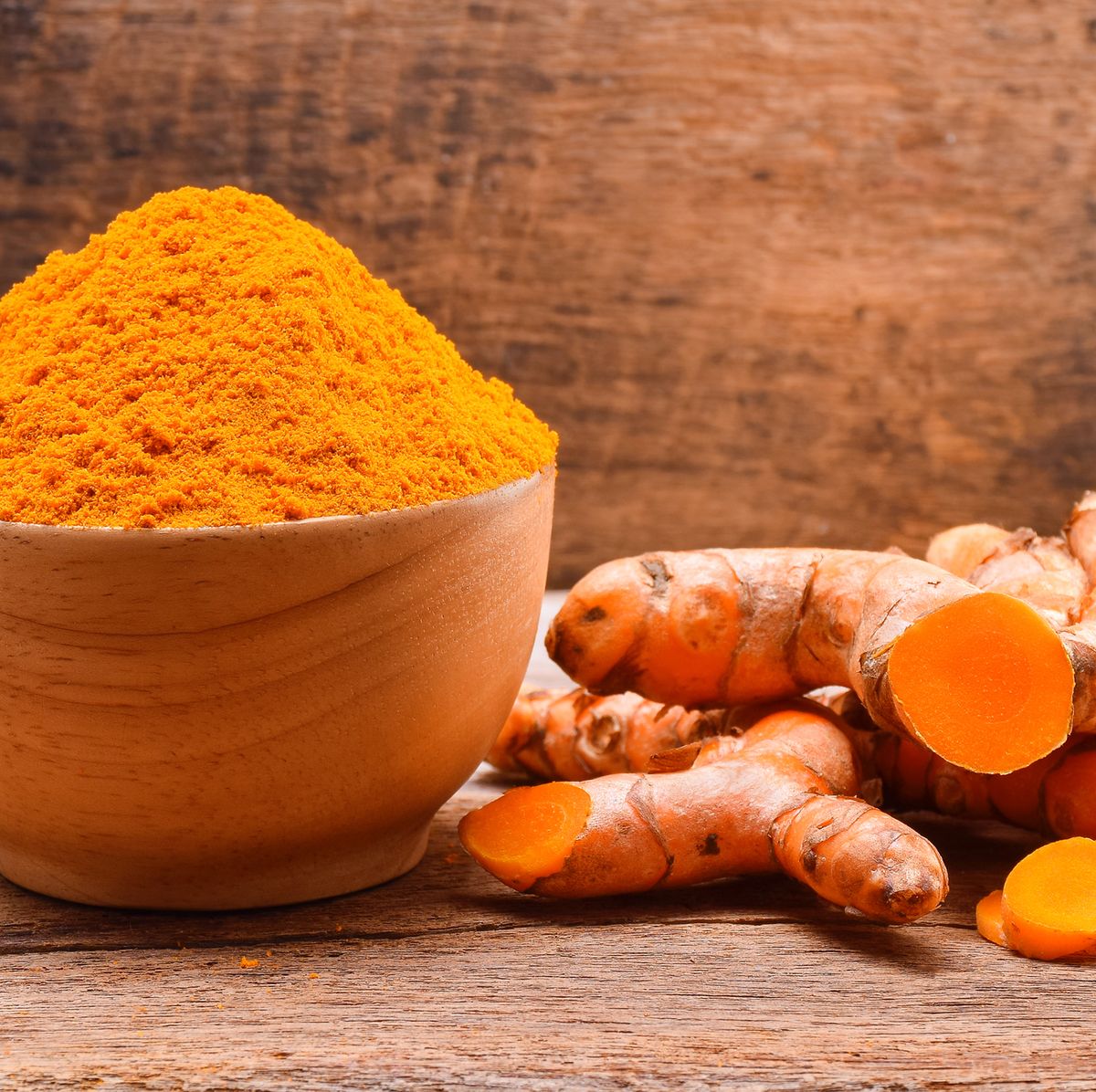
What is Turmeric?
Turmeric is a spice with a warm, bitter flavor that is commonly used in cooking. It is a key ingredient in many Asian dishes and is also responsible for the yellow color of curry. Turmeric is frequently used as an herbal remedy for a variety of ailments and is thought to have numerous health benefits. It is thought to have anti-inflammatory, antiseptic, antibiotic, and antioxidant properties. It has been used to treat a wide range of medical conditions, including digestive problems, arthritis, skin conditions, and depression.
Benefits of Turmeric
- Anti-inflammatory Property
Turmeric is a highly effective anti-inflammatory herb. Curcumin, the active ingredient in turmeric, has been shown in studies to be a powerful anti-inflammatory that can reduce inflammation and pain in joints and muscles. It also aids in the reduction of inflammation in the digestive tract, which can aid in the relief of digestive issues. Turmeric is also thought to reduce inflammation in the brain, which may benefit those suffering from neurodegenerative diseases such as Alzheimer’s. Turmeric has also been shown to reduce inflammation in the cardiovascular system, which can help lower the risk of heart disease.
- Antioxidant Property
Turmeric contains several antioxidant compounds, including curcumin, which has been extensively researched for its potent antioxidant properties. Turmeric also contains the polyphenols desmethoxycurcumin and bisdemethoxycurcumin, as well as turmerones, sesquiterpenes, and a variety of essential oils. These compounds are thought to work together to provide turmeric’s antioxidant benefits.
- Digestive Aid
Turmeric is a popular cooking spice with numerous health benefits. It has been shown to help with digestion and reduce inflammation in the body. However, due to its strong flavor, some people may find it difficult to take turmeric supplements. Here are some ways to use turmeric to help with digestion.
- Turmeric Tea: For 10 minutes, steep a teaspoon of turmeric powder in a cup of hot water. Strain your tea and flavor it with a little honey or lemon. For best results, drink this tea two to three times per day.
- Turmeric Smoothie: Combine a teaspoon of turmeric powder, a cup of almond milk, frozen fruit, and a few ice cubes in a blender. This results in a nutritious and tasty smoothie that can help soothe an upset stomach.
- Turmeric Milk: Bring a cup of milk and a teaspoon of turmeric powder to a boil. Allow it to cool before drinking it and before going to bed. The mixture reduces stomach acidity, making food easier to digest.
- Turmeric Salad: To your favorite salad dressing, add a teaspoon of turmeric powder. The spice stimulates the digestive system and helps to reduce inflammation.
- Turmeric Soup: In a pot of vegetable broth, simmer a teaspoon of turmeric powder. To make a delicious and easy-to-digest meal, add your favorite vegetables and seasonings to the soup.
- Cancer Prevention
Turmeric must be consumed in high doses or concentrations to be effective in cancer prevention. This can be accomplished by incorporating turmeric into your diet or by taking turmeric supplements. It is also worth noting that the active ingredient in turmeric, curcumin, is poorly absorbed by the body and must be combined with black pepper to be effective. To get the best results, take a turmeric supplement that contains both curcumin and black pepper extract. Furthermore, because turmeric may interact with certain medications, it is best to consult with a doctor or pharmacist before using it.
- Brain Health
Turmeric is an herb with medicinal properties that have been used for centuries. It has been used to treat a wide range of conditions, including brain health. Turmeric has been shown in studies to protect the brain from the effects of aging and may even help to reduce the symptoms of dementia and Alzheimer’s disease. Curcuminoids, which are found in turmeric, are thought to be responsible for their health benefits. Curcuminoids are potent antioxidants that can shield cells against oxidative stress and inflammation. Turmeric has also been shown in studies to increase levels of the neurotransmitter serotonin in the brain, which aids in the reduction of anxiety and depression. Turmeric may also help to improve memory and concentration.
- Skin Health
Turmeric is a fantastic natural ingredient that has numerous health benefits. It has been used for centuries in Ayurvedic medicine and is known for its anti-inflammatory, anti-bacterial, and antioxidant properties. It is also known for its ability to protect the skin from sun damage, reduce wrinkles, and lighten dark spots. Turmeric can be used to improve skin health in a variety of ways, including topical treatments, face masks, and dietary supplements. To maintain healthy skin, it is important to remember that, while turmeric has many benefits, it is still necessary to practice sun protection and a healthy lifestyle.
- Blood Sugar Regulation
Turmeric has been shown to help diabetics regulate their blood sugar levels. It accomplishes this by increasing insulin production, which aids in the regulation of the body’s use of glucose. Furthermore, the compounds in turmeric can help reduce inflammation and oxidative stress, both of which can contribute to high blood glucose levels. Turmeric has been shown in studies to reduce fasting blood sugar levels by up to 25%.
- Cognitive Function
Turmeric has been investigated for its ability to improve cognitive function. According to research, it may help to improve memory, reduce inflammation, and even protect against age-related cognitive decline. Turmeric supplements improved both short-term and long-term memory in adults over 45, according to one study. Curcumin, the active compound in turmeric, has been shown in other studies to reduce inflammation in the brain and oxidative stress, which can lead to improved cognitive function. Furthermore, preliminary research suggests that turmeric may be useful in the treatment of Alzheimer’s disease, though more research is needed to confirm these findings.
Conclusion
To summarise, turmeric is an incredibly strong and versatile superfood with numerous health benefits. Turmeric is an incredibly beneficial ingredient that can help to improve overall health and well-being by boosting immunity, detoxifying the body, reducing inflammation, and acting as an antioxidant. Its potent anti-inflammatory properties can help protect the body from a variety of diseases while also providing a natural energy boost. Furthermore, it is extremely inexpensive and simple to incorporate into any diet. Turmeric is an excellent choice for anyone looking to improve their health and well-being for these reasons.
FAQS
- What is turmeric?
Turmeric is a yellow-orange spice derived from the root of the Curcuma longa plant that is widely used in Indian and Asian cuisines. It has been used in traditional medicine for centuries for its antioxidant and anti-inflammatory properties.
- What are the turmeric health benefits?
Turmeric is thought to have numerous health benefits, including the ability to reduce inflammation, aid digestion, boost the immune system, and help prevent certain diseases. It has also been demonstrated to have anti-cancer and antioxidant properties.
- What is the best way to use turmeric?
Turmeric can be used in a variety of ways. It can be used as a spice in food, as a supplement, or made into tea. It is critical to follow the recommended dosage when using it as a supplement.
- Is it safe to use turmeric?
Turmeric in moderate amounts is generally regarded as safe. Before taking turmeric, as with any supplement or food, consult your doctor if you have any pre-existing health conditions.






